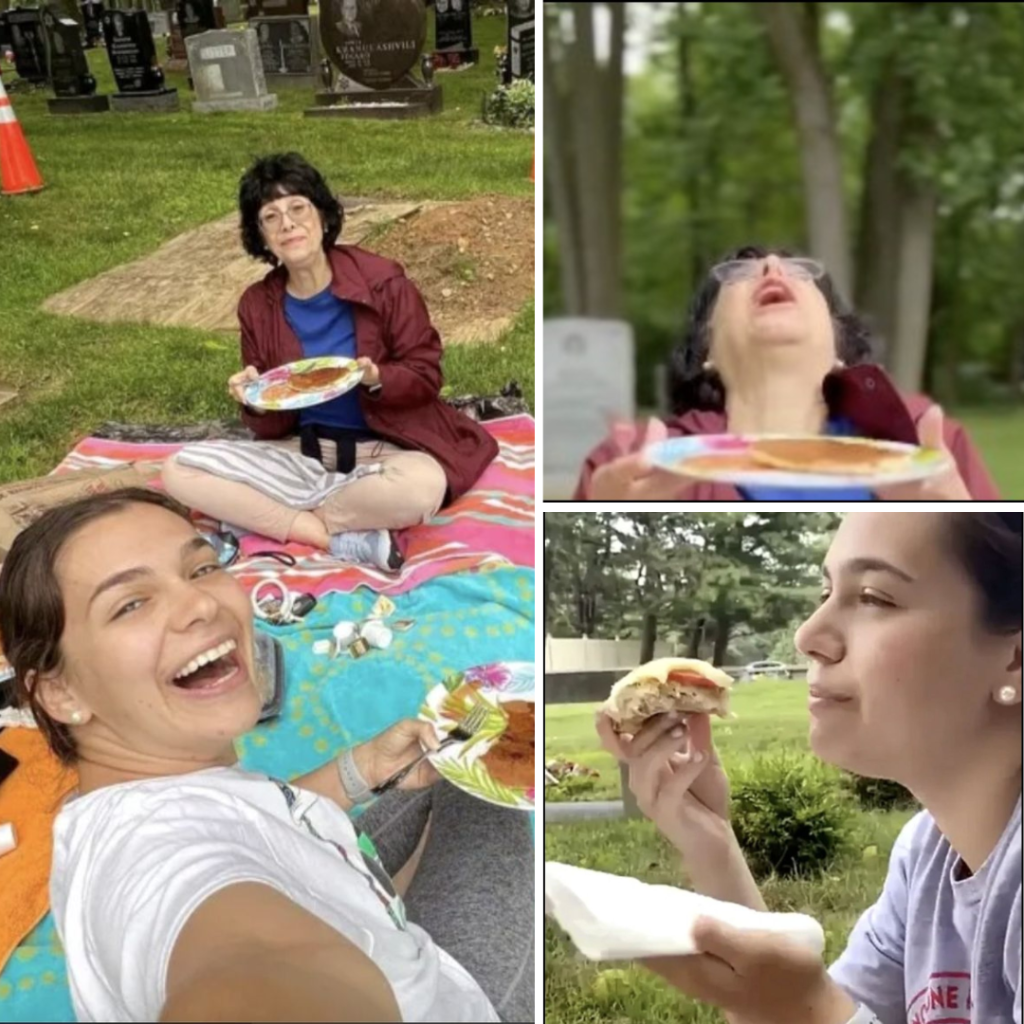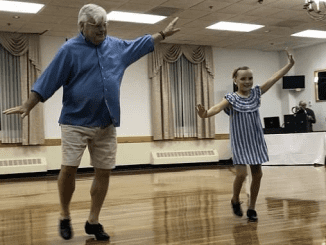When the Rosenthal family began posting videos of their Father’s Day celebrations at the gravesite of their late patriarch, Mark, they had no idea the backlash they would face. In a world where social media often dictates how we grieve, the family’s unapologetic approach to honoring Mark’s memory has sparked a much-needed conversation about the complexities of mourning in the digital age.
For Robin Rosenthal and her children, Sam and Emma, the loss of Mark 13 years ago was a devastating tragedy that they are still navigating. However, instead of shying away from their grief, the family has chosen to share their healing process with their 600,000 TikTok followers, posting videos of their visits to Mark’s grave.
In one particularly poignant video, the family is seen enjoying a Father’s Day lunch by Mark’s graveside, with Robin even tossing a french fry towards the ground as if to share her meal with her late husband. While the gesture may seem unconventional to some, it is a testament to the Rosenthals’ unwavering commitment to keeping Mark’s memory alive.

However, not everyone has been receptive to the family’s unique approach to mourning. Social media comments have ranged from calling the videos “creepy” to accusing the Rosenthals of “disrespect.” This stark divide highlights the need for greater empathy and understanding when it comes to the diverse ways in which people process grief.
In the digital age, the way we grieve and honor our loved ones has been irrevocably transformed. Social media has become a platform for both sharing and scrutinizing the most intimate moments of loss, and the Rosenthal family’s experience is a poignant reminder of the challenges that come with this new reality.
For the Rosenthals, their Father’s Day celebrations at Mark’s grave are not a performance for public consumption, but rather a deeply personal and meaningful way to maintain a connection with their lost loved one. By embracing their own unique grieving process, they are challenging the societal norms and expectations that often dictate how we should mourn.
As the online criticism of the Rosenthals’ videos continues, it is crucial that we approach this situation with empathy and understanding. Grief is a highly personal and complex experience, and what may seem unconventional to one person may be a profound source of comfort and healing for another.
The Rosenthal family’s viral tributes to their late patriarch, Mark, have sparked a much-needed conversation about the evolving landscape of grief in the digital age. While their approach may not resonate with everyone, their unwavering commitment to honoring their loved one’s memory is a testament to the strength and resilience of the human spirit. As we navigate the complexities of mourning in the 21st century, it is essential that we approach each other’s grief with compassion, understanding, and the recognition that there is no one-size-fits-all way to heal.


